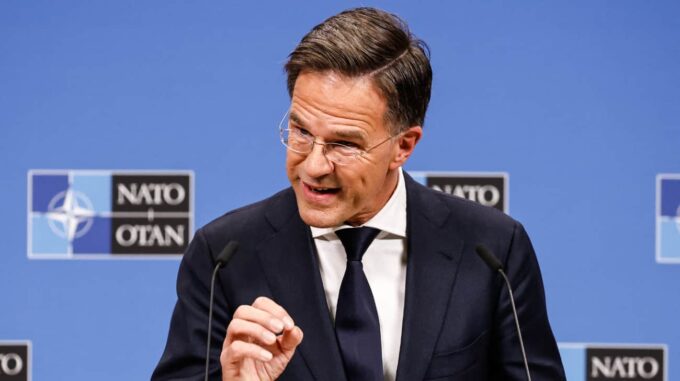NATO Secretary General Mark Rutte made a resonant statement regarding the possible consequences of a ceasefire in Ukraine, which garnered significant interest within the international diplomatic community

During his speech at the forum in the prestigious analytical center Chatham House in London on June 9, the politician emphasized that any potential ceasefire on Ukrainian territory could lead to unforeseen and regionally dangerous consequences. Specifically, he pointed out that under prolonged halts in hostilities, Russia gains the opportunity to more actively accumulate weapons and military equipment, significantly increasing potential security risks for NATO member countries. In response during the discussion in London, Mark Rutte confirmed that this fact is quite obvious to analysts and military experts: "This is a matter of fact, I believe. When it comes to Russia's capabilities after an agreement to cease fire, they will already be able, even in a state of truce, to increase their stockpiles of weapons, which in turn will lead to an escalation of potential threats to NATO." He noted that even now, as the war continues, Russian military forces can improve and accumulate ammunition, but the key point is that the period of quiet when hostilities diminish allows Moscow to strengthen its defensive positions. "I want to emphasize once again that this is a fact, and perhaps the most important point is," he stressed. "Depending on the circumstances, a reduction in active hostilities may play into the hands of the Russian command, which will be able to prepare its army and reserves to the maximum before new stages of the conflict." According to Rutte, the so-called "moment of silence" gives the Kremlin an opportunity to reinforce its combat capabilities, thereby increasing the threat level for NATO countries and forcing the alliance to stay vigilant. It is worth recalling that earlier, "European Pravda" reported that NATO Secretary General also expressed concerns that a potential resolution of the conflict could cause geopolitical upheavals in the region and increase security risks in the European Union and especially for NATO allies. Within these warnings, experts are confident that Russia could at any moment shift from a positional battle tactic to large-scale military activity, especially when the international community is focused on efforts toward peaceful negotiations. Furthermore, it should be mentioned that according to the German Federal Intelligence Service, Russia already perceives itself as responding to the West’s challenges in systemic confrontation and is directly preparing for large-scale war with NATO, viewing this conflict as one of the main scenarios for future developments. At the same time, the recent interview of European Commissioner for Defense Andrea Kubiļus with Ukrainian and international media once again emphasized that maintaining stability in Ukraine is crucial for deterring Russia from new aggressions. "Peace in Ukraine is not a guarantee that Russia will not attack the European Union in the future. It appears that there is only one way to preserve our borders and security – decisive and effective action by the international community," he stated. Therefore, the conclusions from these diplomatic statements and analytical assessments are more than clear: any general or partial ceasefire in Ukraine must be considered with regard to potential security consequences. According to experts, Russia’s ability to activate its combat resources during periods of calm creates additional threats both for Ukraine and the entire Euro-Atlantic region. As such, questions of security and preparedness for various scenarios remain key for NATO and its partners worldwide, given that these key players are facing the challenge of maintaining stability, preventing a new war, and ensuring the safety of their citizens in a world where risks are increasing daily.

